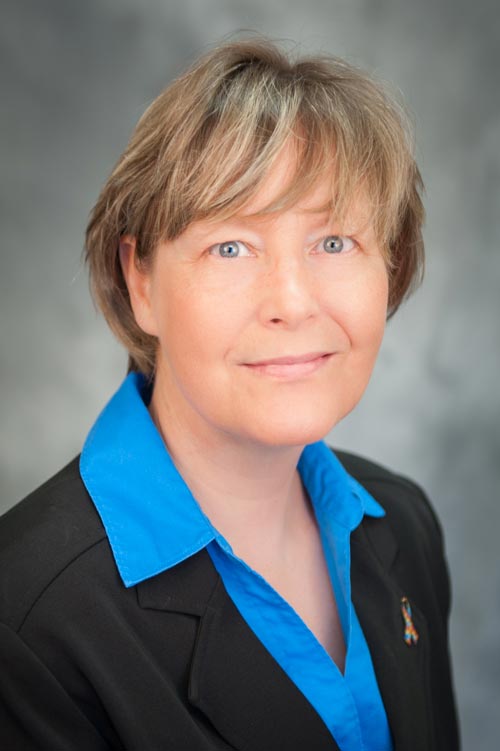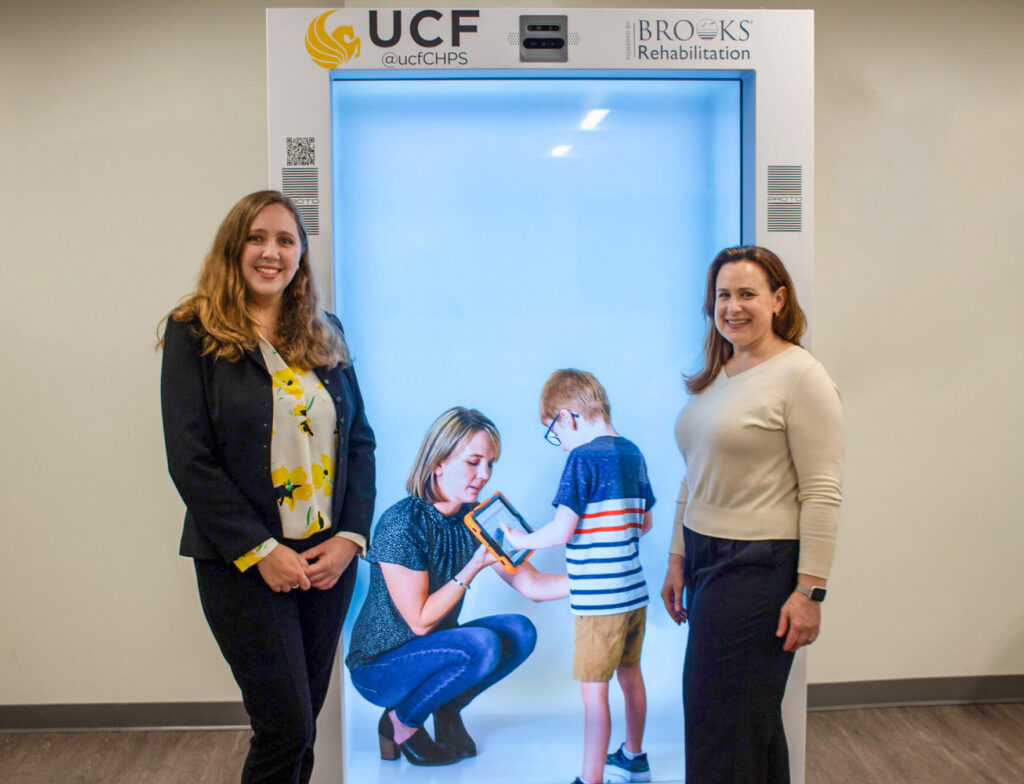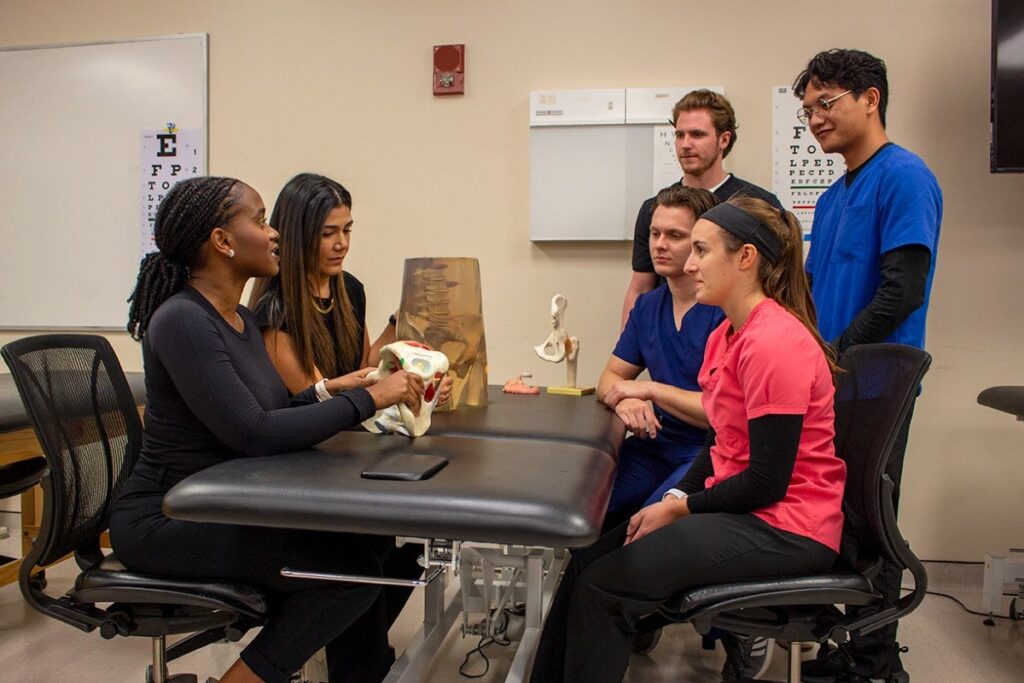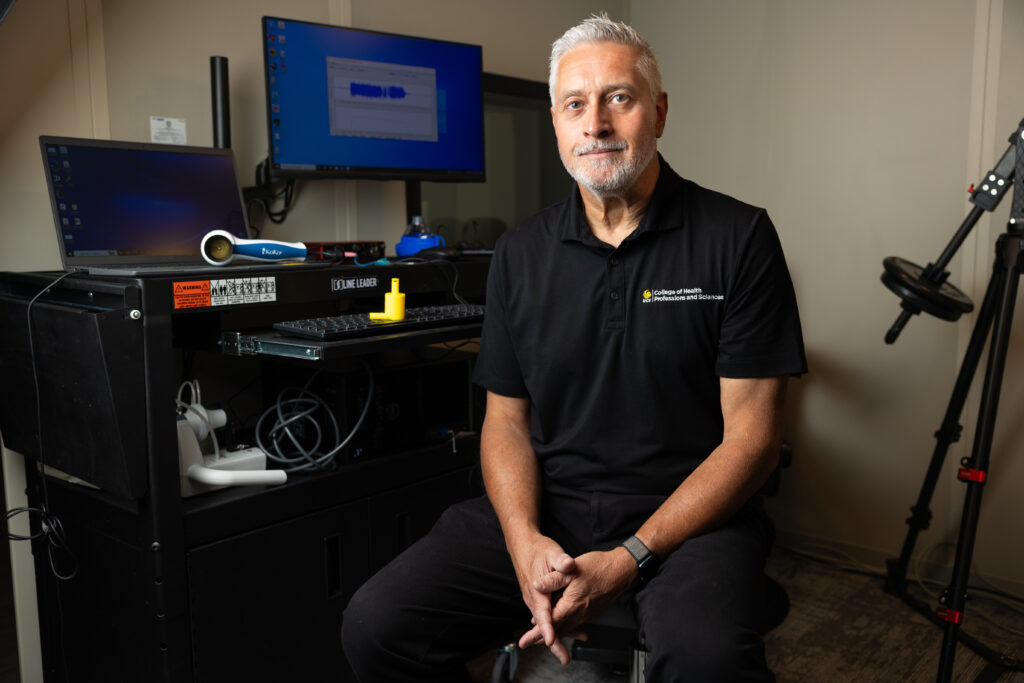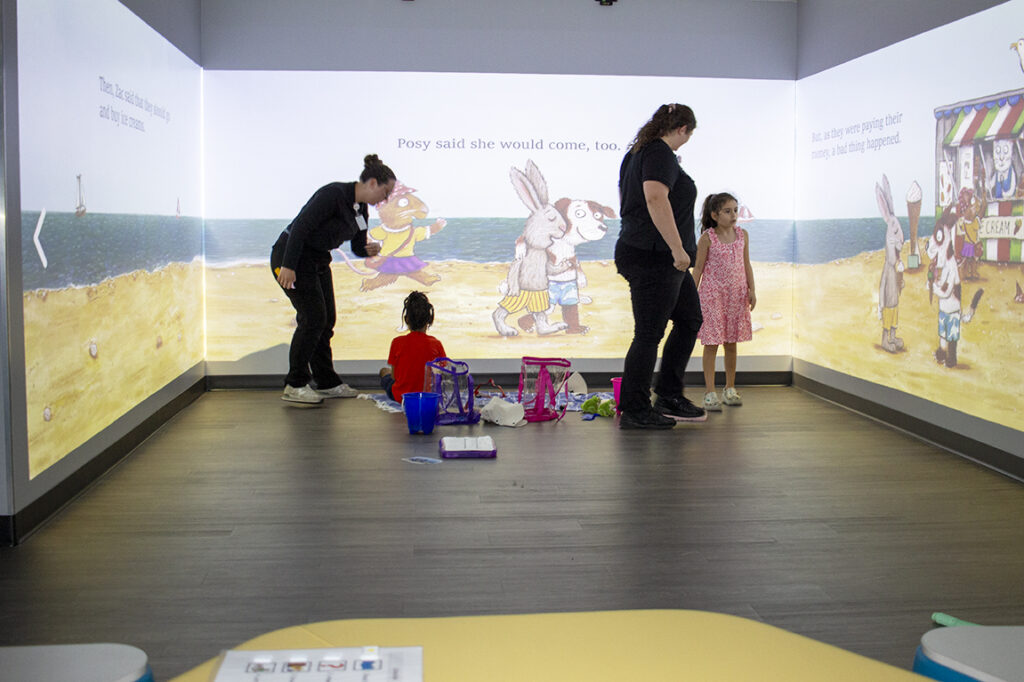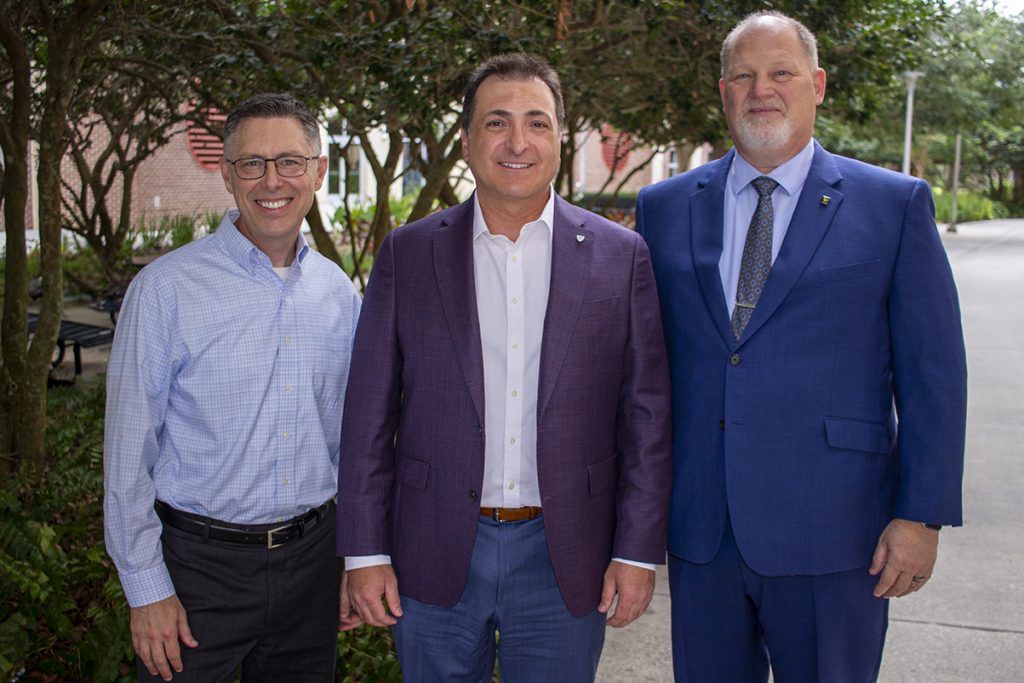The UCF Center for Autism and Related Disabilities currently serves more than 15,000 families, providing support and assistance to families with children on the autism spectrum.
Terri Daly, the director of UCF CARD, wants to expand support for children with autism. Her clinical research has focused on the impact that inclusive preschool programs have on children with autism and their typically-developing peers.
Daly originally wanted to enter neonatal research, but changed career direction in graduate school after her faculty mentor decided to go to Africa for three years. Daly wanted to do something that could help people, and her interactions at an inclusive preschool piqued her interest in interventions and models to maximize children’s developmental progress. “I found that typically-developing children show enhanced social behavior when educated alongside children with autism and developmental disabilities,” Daly said.
With this research, Daly has been instrumental in developing models for best practices for early intervention for children with autism, and developing ways to embed these interventions into regular routines at home and at school.
“What seems like a little thing to many people can be a life-changer for a child with autism or their family,” Daly said.
She sees her work of preparing the next generation of clinicians as an important way to make a profound impact on helping children with ASD. At CARD, she works with a team of student assistants, who learn how to create visual supports and other evidence-based practices.
One of the programs Daly helped develop is the REACH program (Real Experiences in Autism Classrooms Helps), which pairs teachers with college students who want to learn how to support children with ASD. These model classrooms provide hands-on learning and best prepares future educators and clinicians to work with the ASD population.
“This helps the students from CSD, Psychology, and Education get valuable hands-on experience and provides extra support so the teachers can get more direct instruction done with their students,” Daly said.
Her work with students studying communication sciences and disorders has been a joy and a pleasure for Daly.
“I have been extremely excited to see my former students presenting at state and national conference and taking their skills to new levels as young professionals,” she said.
It has also been a joy for Daly to see the impact that the work of the center is making in the local community.
“We want to develop communities that welcome, understand and support people with autism to successfully live, work, learn and play in their communities and to support these individuals to maximize their potential,” she said.
